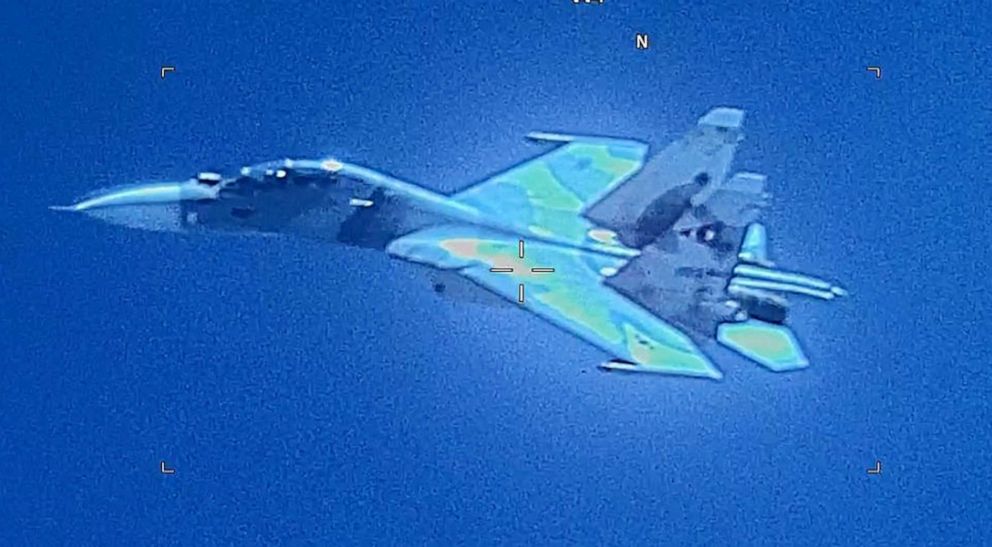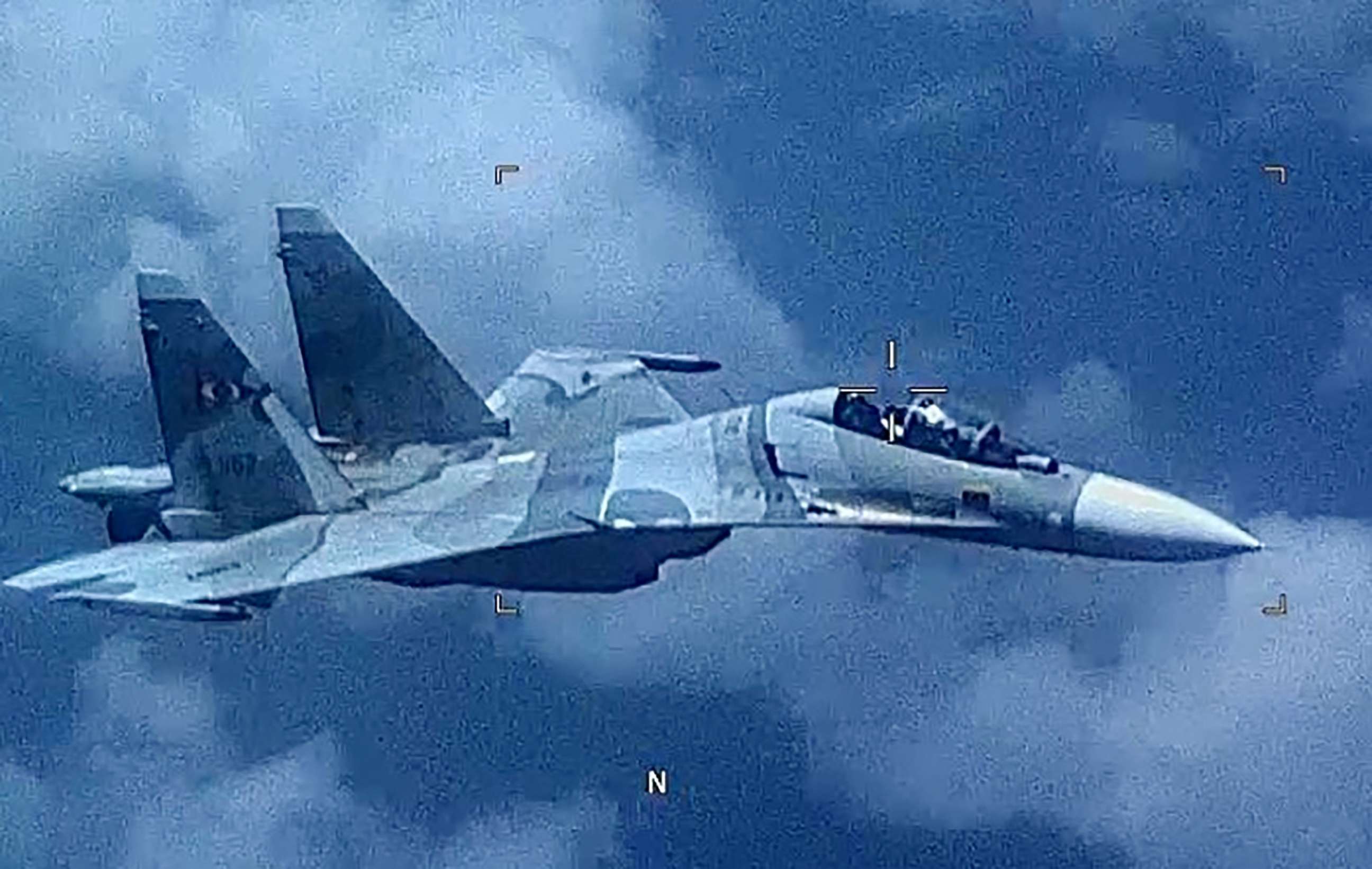Venezuelan fighter 'aggressively shadowed' US reconnaissance plane over Caribbean Sea: US military
The US military said the move jeopardized the U.S. aircraft and crew.
A Venezuelan Su-30 fighter plane "aggressively shadowed" a U.S. reconnaissance aircraft operating over the Caribbean Sea, according to U.S. Southern Command (SOUTHCOM), in a move the U.S. is calling "unprofessional."
In a series of tweets on Sunday, SOUTHCOM said the Venezuelan fighter, which took off from an airfield 200 miles east of Caracas on Friday, "'aggressively shadowed' a U.S. EP-3 at an unsafe distance...jeopardizing the crew and aircraft."
"The EP-3 was performing a multi-nationally recognized and approved mission in international airspace" over the Caribbean Sea, SOUTHCOM added.

Venezuela's defense minister Vladimir Padrino Lopez said on Saturday that the U.S. aircraft entered a flight region controlled by Venezuela without reporting necessary information, breaking with international regulations.
Venezuela has purchased military aircraft, including the Su-30, from Russia. U.S. officials have previously accused Moscow of propping up Venezuelan president Nicolas Maduro amid the ongoing economic and humanitarian crisis there.
SOUTHCOM said the action of the Venezuelan fighter on Friday "demonstrates Russia's irresponsible military support to Maduro's illegitimate regime and underscores Maduro's recklessness and irresponsible behavior, which undermines international rule of law and efforts to counter illicit trafficking."
These types of interactions between U.S. and Venezuelan aircraft are far less common than those between U.S. and Russian aircraft. While most intercepts are safe and professional interactions, the U.S. military will highlight those it deems unsafe or unprofessional.
Last month, a U.S. P-8A Poseidon reconnaissance aircraft experienced an "unsafe" and "irresponsible" intercept by a Russian fighter jet over international waters, the U.S. Navy's Sixth Fleet said.

The P-8A was intercepted by a Russian SU-35 "three times over the course of 175 minutes" over the Mediterranean Sea, the Sixth Fleet said. While "the first and third interactions were deemed safe," the second "was determined to be unsafe due to the SU-35 conducting a high-speed pass directly in front of the mission aircraft, which put our pilots and crew at risk."
ABC's Esther Castillejo contributed to this report.




